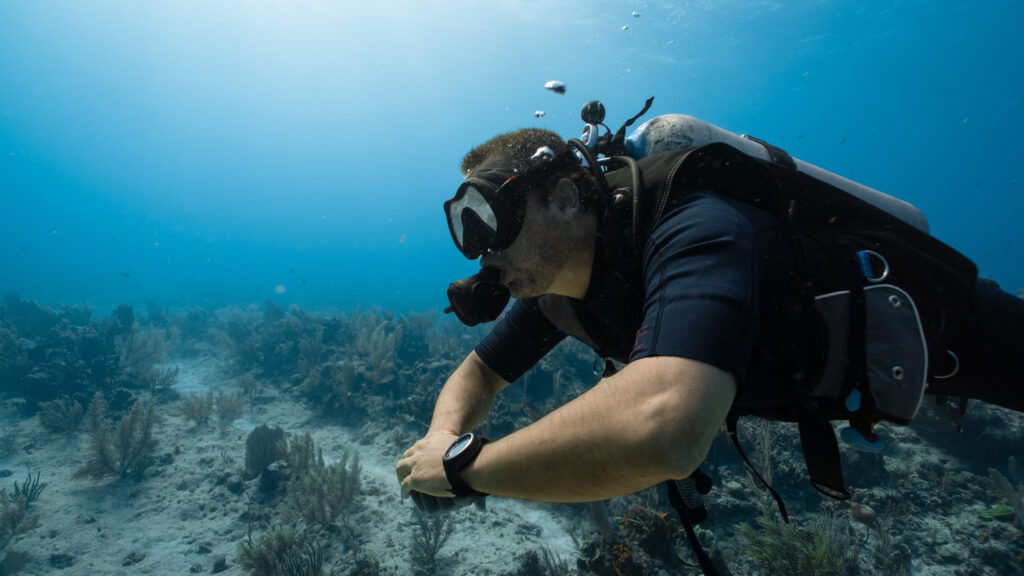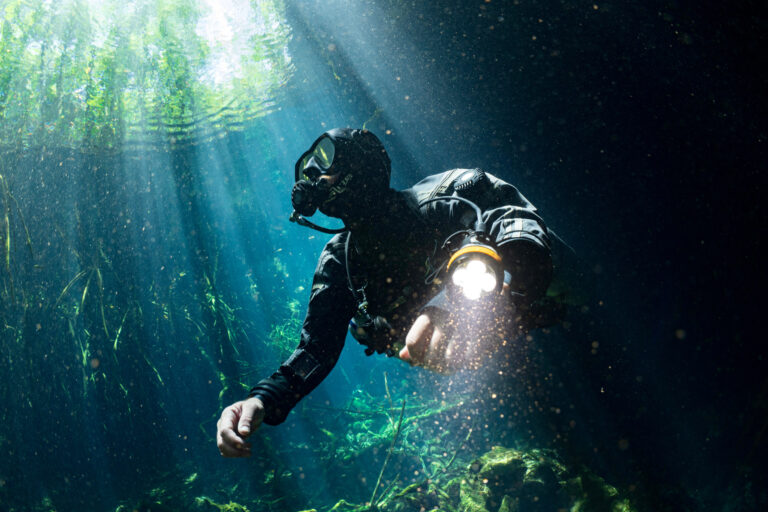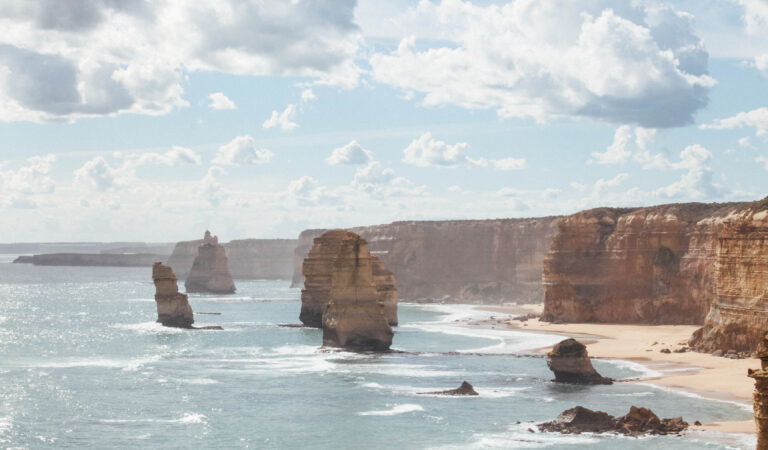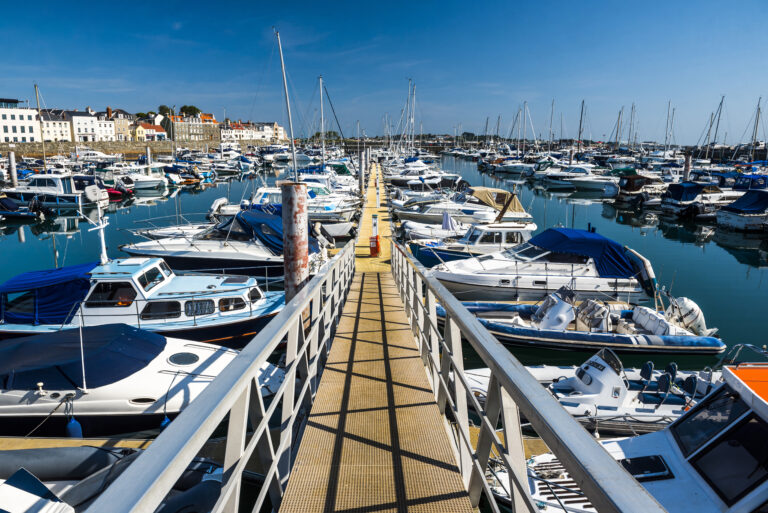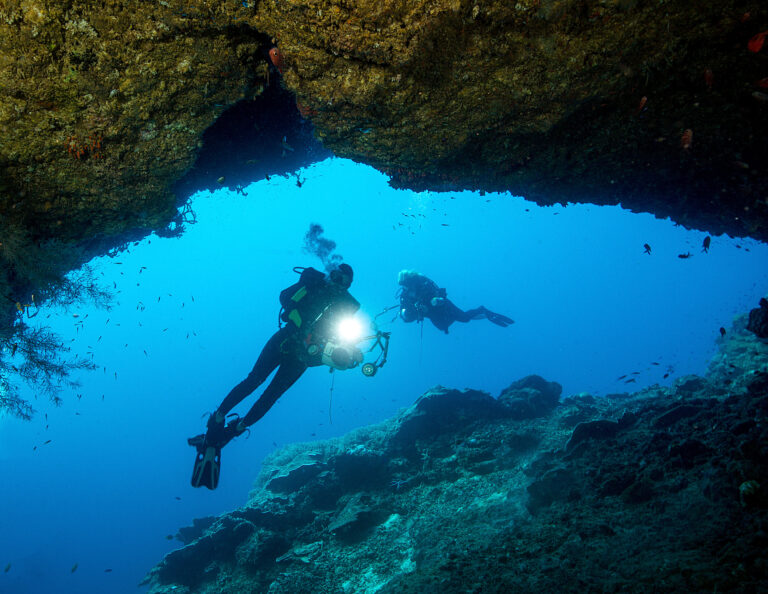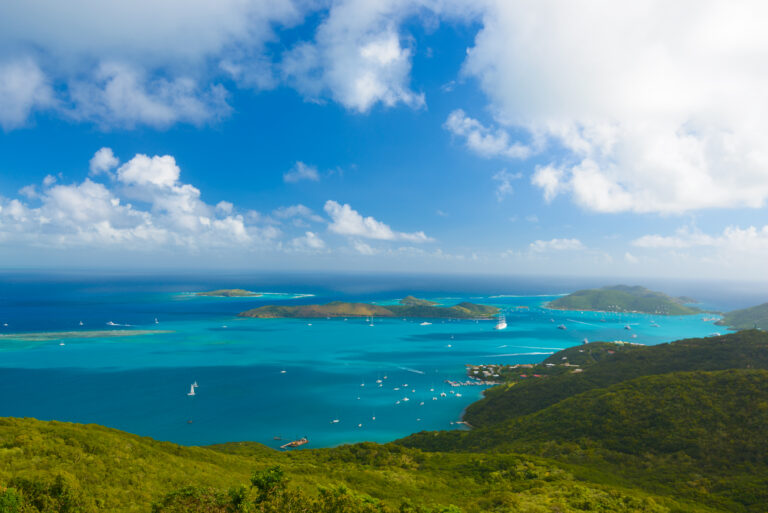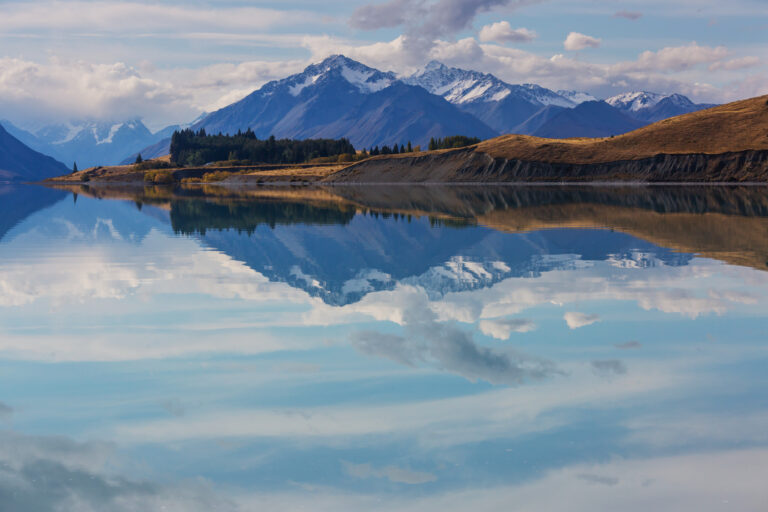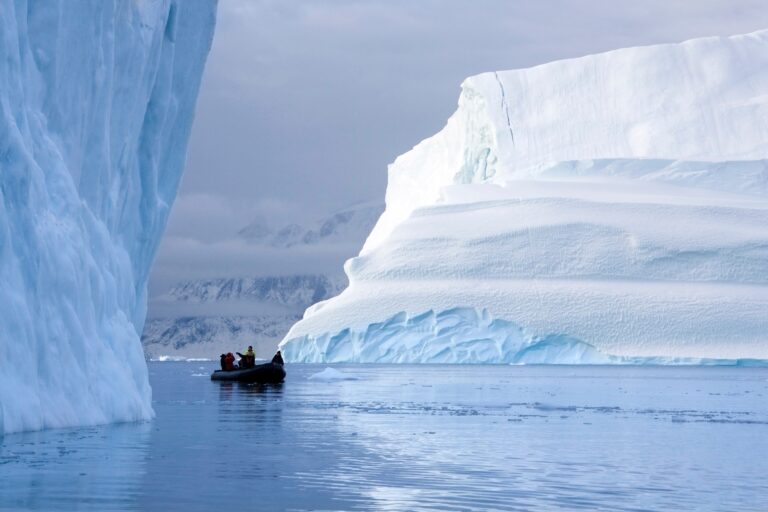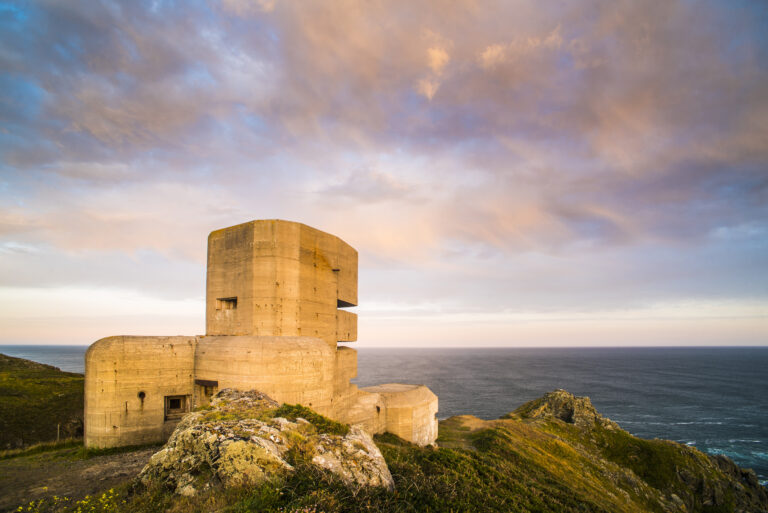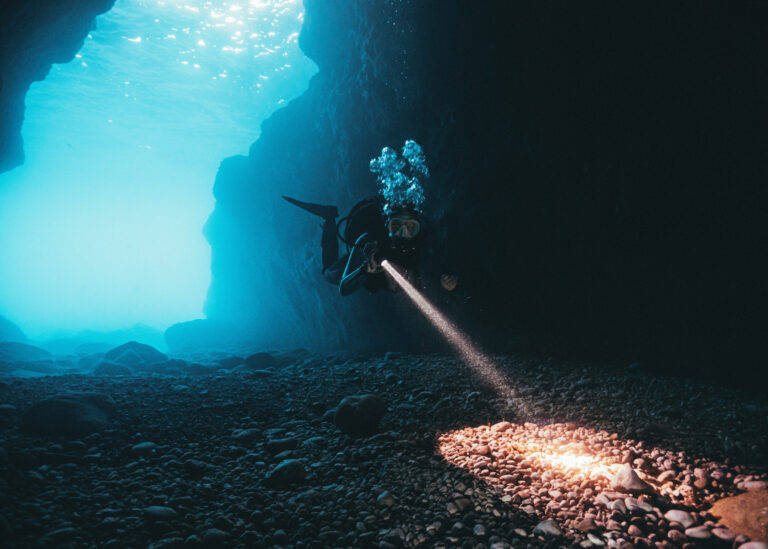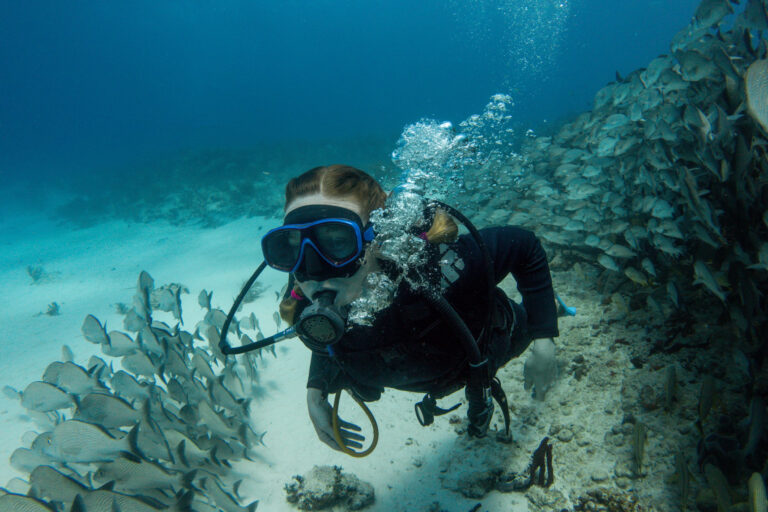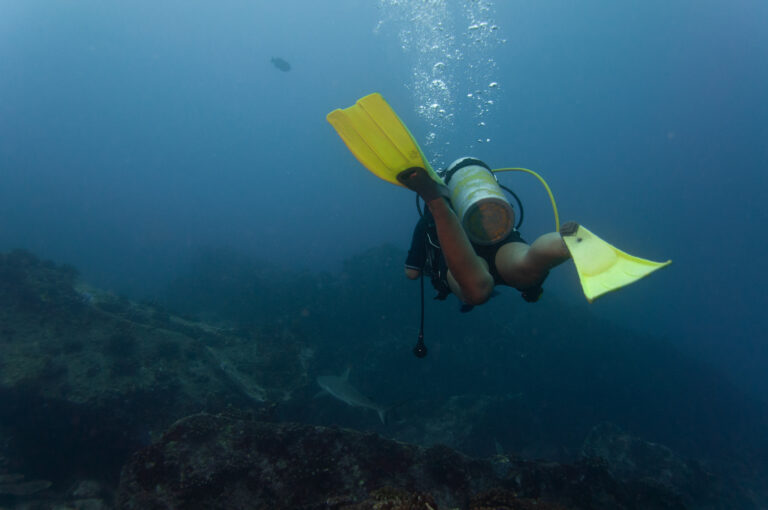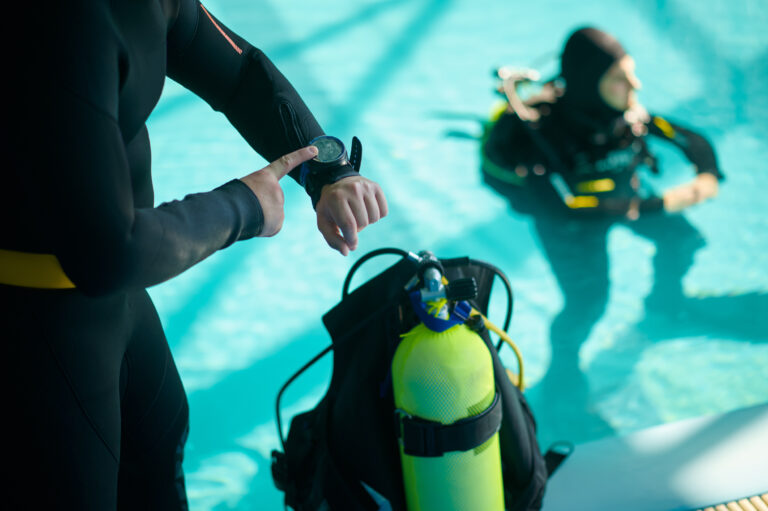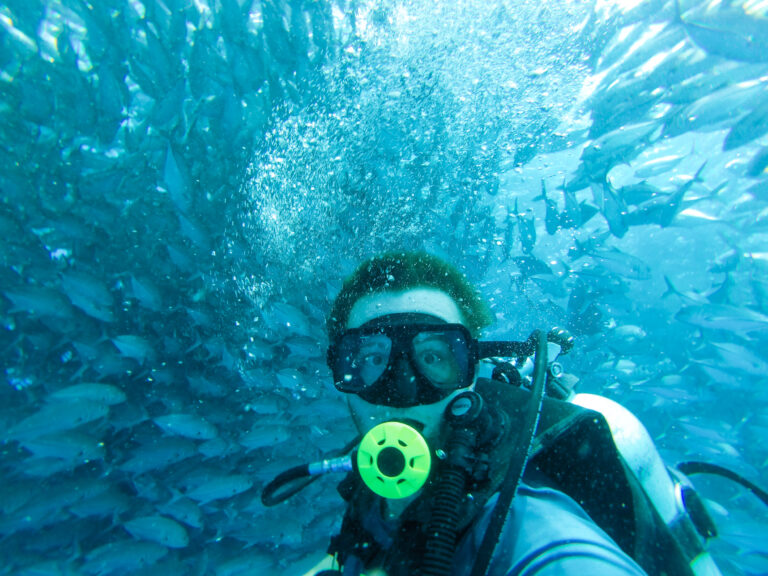Scuba Divers’ Travel Guide to Nauru
Nauru, a small island nation in the central Pacific, offers scuba divers a unique and intimate diving experience. The island’s clear, warm waters are home to vibrant coral reefs and a variety of marine life. Nauru’s remote location ensures that the dive sites remain relatively untouched, providing a sense of exploration and discovery. The island’s friendly culture and natural beauty add to the appeal for scuba travelers. For those seeking a serene and unspoiled diving destination, Nauru offers a captivating and memorable underwater adventure.
Location and Geography
Nauru, the world’s third-smallest country by land area, is a solitary raised coral atoll in the vast expanse of the Pacific Ocean, lying just south of the equator. This remote island nation, with a coastline of only 30 kilometers, is situated northeast of Australia and is part of the Micronesian region. Its topography is unique, featuring a central plateau known as the Topside, which is a stark contrast to the narrow coastal belt where the majority of the population resides. The surrounding reef offers scuba divers a rare opportunity to explore pristine underwater landscapes relatively untouched by mass tourism. The waters around Nauru are known for their clarity and the rich marine biodiversity, including colorful coral gardens, a variety of fish species, and occasional sightings of larger pelagic creatures. Diving in Nauru is an adventure for those seeking a truly off-the-beaten-path experience, where the island’s isolation becomes a gateway to an underwater world of unspoiled beauty.
Visa and Entry Requirements
Before planning your scuba diving adventure to Nauru, one of the world’s smallest island nations, it is crucial to understand its visa and entry requirements. As of the latest information, most visitors to Nauru, including those coming for scuba diving, need to apply for a tourist visa in advance, as there are no visa-on-arrival facilities. The application process typically involves submitting a completed visa application form, a valid passport, proof of accommodation, a return ticket, and a recent passport-sized photograph. Additionally, you may be required to provide evidence of sufficient funds for your stay. It’s important to check with the nearest Nauru consulate or embassy for the most current visa information, as policies can change. Keep in mind that Nauru has limited international flight connections, so it’s essential to plan your travel itinerary carefully to ensure compliance with visa validity and entry requirements. Always verify the latest entry protocols, as health and safety regulations, such as vaccination or quarantine requirements, may be in place due to ongoing global health concerns.
Getting to Nauru
Getting to Nauru, one of the world’s smallest and most remote island nations, requires a bit of planning as it is not a typical tourist destination with frequent flights. The primary way to reach this isolated Pacific paradise is by air via Nauru International Airport (INU), which is located just outside the capital city of Yaren. Nauru Airlines operates flights to and from Brisbane, Australia, which is the most common transit point for international travelers. These flights are typically scheduled once or twice a week, so it’s essential to book well in advance and align your travel plans accordingly. Given the limited number of flights, it’s also advisable to confirm your return journey at the time of booking. Upon arrival, visitors will find themselves stepping into a unique and untouched diving haven, with the journey itself being part of the adventure that awaits beneath the waves of Nauru’s crystal-clear waters.
Best Time to Dive
Getting to Nauru, one of the world’s smallest and most remote island nations, requires a bit of planning as it is not a typical tourist destination with frequent flights. The primary way to reach this isolated Pacific paradise is by air via Nauru International Airport (INU), which is located just outside the capital city of Yaren. Nauru Airlines operates flights to and from Brisbane, Australia, which is the most common transit point for international travelers. These flights are typically scheduled once or twice a week, so it’s essential to book well in advance and align your travel plans accordingly. Given the limited number of flights, it’s also advisable to confirm your return journey at the time of booking. Upon arrival, visitors will find themselves stepping into a unique and untouched diving haven, with the journey itself being part of the adventure that awaits beneath the waves of Nauru’s crystal-clear waters.
Accommodation Options
Accommodation options on the tiny island nation of Nauru, renowned for its pristine waters and vibrant marine life, are limited but sufficient for the intrepid scuba diver seeking an off-the-beaten-path adventure. Visitors can choose from a handful of lodging options, the most prominent being the Menen Hotel, which offers comfortable rooms and essential amenities, including a swimming pool for relaxation after a day of diving. Alternatively, the Od’n Aiwo Hotel provides a more budget-friendly choice with basic facilities. Both hotels can assist with organizing diving excursions, as there are no dedicated dive resorts on the island. For those looking for a homelier stay, there are a few guesthouses and Airbnb rentals that offer a more personal touch to your visit. It’s advisable to book accommodations well in advance, as options can fill up quickly due to the limited number of rooms on the island.
Dive Operators and Dive Shops
Nauru, one of the world’s smallest island nations, offers a unique diving experience that is as intimate as it is exclusive, with dive operators and shops operating on a much smaller scale compared to larger destinations. Due to its remote location in the Pacific Ocean and the limited number of tourists, diving in Nauru is typically arranged through a small number of local operators who provide personalized service and have an in-depth knowledge of the best dive sites around the island. These operators ensure that divers can explore the underwater wonders of Nauru, including its pristine coral reefs and the abundance of marine life, in a safe and environmentally responsible manner. Divers should plan ahead and communicate with these local experts well in advance of their trip, as the resources on the island are limited and services may need to be scheduled around the availability of equipment and guides. With the right planning, diving in Nauru can be a truly memorable adventure, offering a sense of discovery in a destination that few have had the privilege to explore beneath the waves.
Transportation within Nauru
Transportation within Nauru, one of the world’s smallest island nations, is relatively straightforward due to its diminutive size, with an area of just 21 square kilometers. The island’s singular 19-kilometer coastal road encircles the entire country, making any scuba diving site easily accessible by car or bike within minutes. There is no formal public transportation system on the island, but visitors can rent cars, bicycles, or scooters from local businesses to explore both the terrestrial sights and the coastal areas where diving excursions begin. Taxis are available and can be arranged through hotels or by calling local drivers directly. Given the short distances, even walking can be a pleasant way to reach nearby dive sites while enjoying the tropical scenery. However, it’s important to note that Nauru’s remote location in the Pacific Ocean means that getting to the island itself typically requires a flight via Nauru Airlines, which serves as the primary international link to this unique diving destination.
Currency and Payment Methods
When traveling to Nauru for scuba diving, it’s important to note that the official currency is the Australian Dollar (AUD). Credit cards are accepted at some hotels and businesses, but their use is not widespread, so it’s advisable to carry cash for most transactions, especially when dealing with smaller dive operators or local services. There are no ATMs on the island that accept foreign cards, so ensure you withdraw enough cash before arriving or bring AUD with you. Traveler’s checks can be difficult to cash, so they are not recommended. Since Nauru is a small and remote island nation, it’s also wise to confirm payment methods with your chosen dive operator prior to your trip to avoid any inconveniences once you arrive.
Language and Communication
When planning a scuba diving trip to Nauru, a small island nation in Micronesia, it’s important to consider the language and communication nuances you may encounter. Nauruan, the official language, is spoken by the indigenous population, but English is widely used, especially in business, government, and tourism sectors, making it accessible for English-speaking divers. Communication with local dive operators and guides is typically conducted in English, ensuring that dive briefings and safety instructions are clear and comprehensible. However, embracing a few basic phrases in Nauruan can be a delightful way to connect with the local community and express respect for their culture. Underwater, divers rely on universal hand signals to communicate, so regardless of linguistic differences, safety and coordination during dives are maintained. It’s always advisable to confirm with your chosen dive operator about any specific language requirements or services, such as multilingual guides, to ensure a seamless and enjoyable diving experience in the pristine waters of Nauru.
Local Culture and Attractions
Nauru, the world’s third-smallest country, offers a unique cultural tapestry that reflects its Micronesian roots, colonial history, and contemporary challenges. While the island’s scuba diving attractions are centered around its vibrant coral reefs and diverse marine life, visitors can also immerse themselves in the local culture by engaging with the friendly Nauruan people. Traditional crafts such as weaving and woodworking can be seen, and visitors may have the opportunity to witness local festivities or performances that showcase the island’s music and dance heritage. On land, the remnants of phosphate mining tell a story of economic boom and bust, and the pinnacles of the interior provide a stark contrast to the underwater beauty. The Central Plateau, once the site of extensive mining, now offers a unique lunar-like landscape for exploration. Despite its small size, Nauru’s combination of natural wonders and cultural experiences provides a distinctive backdrop for divers seeking both underwater adventure and cultural enrichment.
Cultural Etiquette and Tips
When planning a scuba diving trip to Nauru, a small island nation in Micronesia, it’s important to approach the local culture with respect and sensitivity. Nauruans are known for their friendly and welcoming nature, but as with any destination, visitors should be mindful of local customs. Dress modestly when not diving, as the community is quite conservative, and always ask for permission before taking photographs of people or entering private property. It’s customary to remove your shoes before entering someone’s home. When interacting with locals, be patient and polite; building rapport is valued and rushing business is considered rude. As a sign of respect, learn a few basic phrases in Nauruan or at least express gratitude in the local language. Since the island has a small population, be aware that resources are limited; practice eco-friendly diving and support local businesses whenever possible. Remember that Nauru is not a typical tourist hotspot, so the pace of life is slower, and the infrastructure is less developed than in other diving destinations. Embrace the unique opportunity to experience the pristine underwater environments and the rich cultural tapestry of Nauru with an open heart and mind.
Local Laws and Regulations Relevant to Tourists
Before plunging into the crystal-clear waters of Nauru, scuba divers should be aware of the local laws and regulations designed to protect both the diver and the pristine marine environment. Nauru, being one of the world’s smallest island nations, has limited natural resources and is particularly sensitive to ecological disturbances. Divers must obtain a local diving permit and should only dive with a registered dive operator who is familiar with the local regulations and marine protected areas. It is strictly prohibited to collect coral, shells, or any marine life, and fishing restrictions are in place to conserve aquatic populations. Additionally, divers should respect local customs and avoid accessing restricted areas, including those of cultural significance to the Nauruan people. Penalties for non-compliance can include fines and, in severe cases, prosecution. Always check with your dive operator for the most current information on regulations, as these can change and may vary depending on specific locations around the island.
Safety Tips and Emergency Contacts
When planning a scuba diving trip to the remote island nation of Nauru, safety should be your utmost priority due to the limited medical facilities available. Always dive within your certification limits and ensure that your dive equipment is in excellent condition. It is crucial to dive with a buddy and maintain close communication throughout your underwater adventure. Familiarize yourself with the local dive sites and conditions by consulting with experienced dive operators on the island. Be aware of the risks of decompression sickness and avoid flying for at least 24 hours after your last dive. In case of an emergency, the Nauru Hospital in Yaren can provide basic medical care, but serious cases may require medical evacuation, which can be time-consuming and costly. Therefore, it is highly recommended to have comprehensive dive insurance that covers hyperbaric treatment and emergency evacuation. The emergency contact number in Nauru is 110 for police and 111 for fire and ambulance services. Always inform someone on land of your dive plans and expected return time. By taking these precautions, you can help ensure a safe and enjoyable diving experience in the pristine waters of Nauru.
Health and Travel Insurance
When planning a scuba diving trip to Nauru, one of the world’s smallest island nations, it is crucial to prioritize health and travel insurance. Given the limited medical facilities on the island, divers should ensure their insurance covers medical evacuation in the event of a diving accident or serious illness, as treatment may require transport to a hospital with more comprehensive facilities in Australia or another nearby country. Additionally, divers should verify that their policy includes coverage for hyperbaric chamber treatment, which is essential for decompression sickness—a risk inherent to the sport. Since Nauru is remote and can be expensive to reach, comprehensive travel insurance that covers trip cancellations, interruptions, and loss of diving equipment is also highly recommended. Always carry proof of your insurance and emergency contact numbers with you, and be aware of the procedures to follow in case you need to activate your insurance plan. Remember, while Nauru’s underwater world is enchanting, safety and preparedness should be your top priorities.

